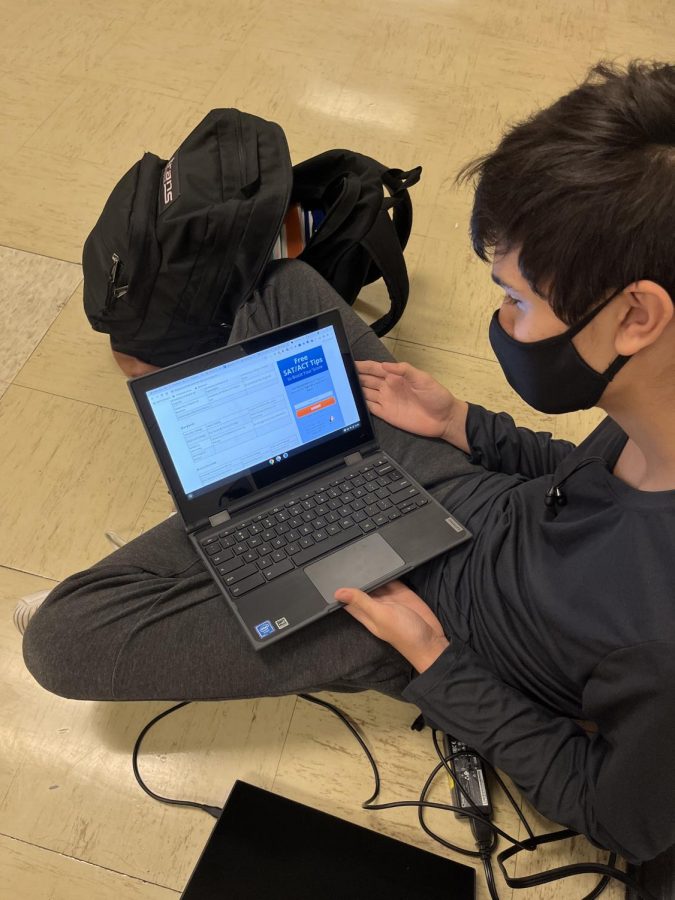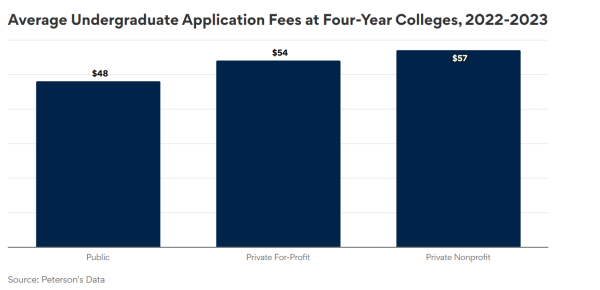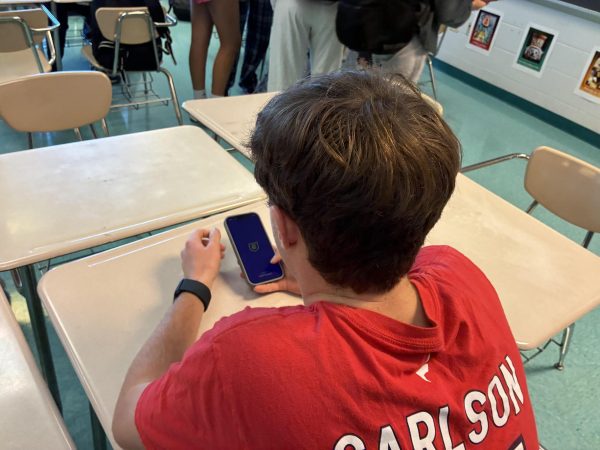Students feel effects of test optional policies
Junior Calvin Hanway browses test optional colleges in Maryland.
With early action and early decision results coming out for current seniors, combined with recently updated policies by colleges for the next application cycle, the controversy of test optional policies (universities making the submission of ACT or SAT scores optional) is at the forefront now more than ever.
Although a small chunk of universities such as Wake Forest and the University of Chicago have had forms of test optional policies for years, even fewer, such as the University of California system, have gone fully test blind and no longer consider any SAT or ACT scores. Most colleges, however, have temporarily implemented test optional policies recently as a result of testing site closures during the coronavirus pandemic. As a result, students are either upset because their top-notch scores may not be as important, or they are elated because they do not have to submit their scores that are below average for their target schools. “I think that standardized tests don’t accurately represent students’ abilities,” junior Prahlad Shelvapille said.
Colleges, including elite universities such as Amherst, Columbia, Cornell and Harvard, have announced the extension of test optional policies for current high school sophomores. “We still have lots of time before college applications for us to take the SAT; it’s a little preemptive to go test optional now. It significantly decreases the value of having a good SAT score,” sophomore Jai Ahuja said.
With scores being such an integral part of the college admissions process, students and parents alike are wondering how colleges will differentiate between students whose profiles would otherwise seem similar due to grade inflation or an easy curriculum. If more schools decide to stay test optional or take the more drastic measure of becoming test blind, the college admissions process would be changed forever. Without ACT and SAT scores, universities will focus more on students’ extracurricular activities, essays, teacher and counselor recommendations, and grade point averages combined with course rigor. “I do not think it is a good idea for current juniors to rely on not taking the SAT or ACT because not enough colleges have bought into the test optional system,” junior Calvin Hanway said.
The implications of this new reality are that students who have, for example, not participated in a variety of extracurricular activities throughout high school may find it more advantageous to prepare well for standardized tests while students who have participated in extracurricular activities may find it more advantageous to forgo the tedious standardized testing process.
There is also a possibility that test optional policies could be here to stay for good. Standardized testing has been scrutinized in the past for favoring the wealthy, so colleges going test optional or even test blind may help reduce the income inequality gap in the college admissions process. “The SAT and ACT, which assess math and verbal skills, have long been criticized as a barrier to diversity, because wealthier students can afford tutors and fancy consultants,” according to Bloomberg.
Your donation will support the student journalists of Thomas S. Wootton High School. Your contribution will allow us to purchase equipment and cover our annual website hosting costs.
Daniel is a 2023 graduate.







